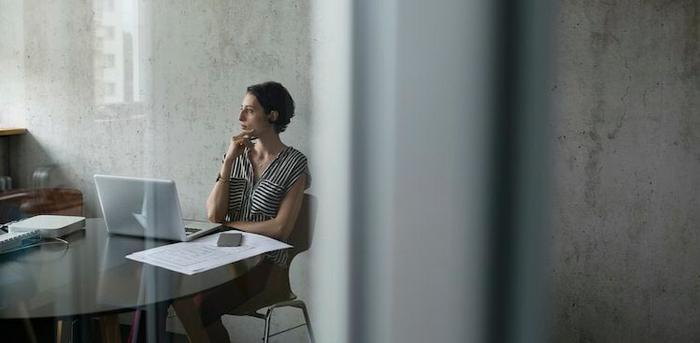
We all like to weigh our options carefully when we’re making decisions. How many times have you browsed six different sites to find the perfect hotel for your next trip? Or, crowdsourced opinions from four different friends to pick the best outfit for an event? Or, asked 10 different co-workers whether you should, in fact, order the noodle bowl from that sketchy restaurant down the street?
There’s certainly nothing wrong with this—the more information we have and the more red flags we eliminate, the more likely we’re going to make a smart decision. But what is wrong is believing that this information will ultimately lead us to the “right” decision.
And that’s because there’s no such thing. A recent article on Raptitude.com says it well:
Choices can be well reasoned or poorly reasoned. Their results can be surprisingly beneficial or surprisingly damaging. But there’s no such thing as a categorically right course of action, just an array of possible ones—and for each, a sprawling, endless web of consequences.
The author suggests we look at it from another angle to better understand this:
Even after we’ve made a decision—for whatever reason we chose that path—“when we’re living with the consequences, we don’t know what the right choice was. All we know is whether we like where we are or don’t like where we are.”
This is such a simple concept, but one we tend to take for granted. Thinking about our decisions from this angle relieves so much of the pressure. When there’s not one perfect answer, it’s a lot harder to go wrong!
The key to this mindset, the author points out, it to remember that just because there isn’t a right decision doesn’t mean you can’t make one that’s wise for your situation. You have every right to choose a hotel that’s way out of your price range and infested with cockroaches, but you’ll probably be a lot happier and have a better trip staying in one that’s cleaner and more affordable. Whichever clean and affordable hotel you choose, however, becomes irrelevant as long as it covers your needs.
The point of all this is—as the author astutely states—to “let yourself off the hook.” Try to get all the facts, but then just take your pick. Stop spending so much time figuring out whether your decisions have hit the mark on the head.
This goes for your career, too. Maybe you’re easily stressed about taking the right job offer, or deciding whether to quit your job, or if you should pursue your passion.
These are big decisions, I won’t deny that. But you’ll never know if they’re the right path until you actually make a decision. You might mess up, you might have to deal with some bigger consequences (both of which are incredible learning experiences), but you might also have made the best decision of your life. And isn’t that enough to feel like you did something right?
Of course, if decisions aren’t your forte, this article and this one are great for helping you make the most informed ones you can.